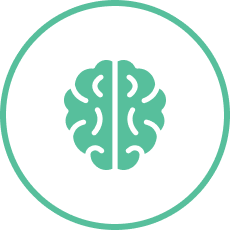Partner Applications are now open for new and returning partners looking to host a fellow during our next fellowship opportunity starting in the fall of 2025. Apply by June 30 to secure your spot.
Since 2014, CivicSpark—an award-winning and evidence-based fellowship program—has helped over 300 communities in three states (California, Washington, and Colorado) build local workforce capacity to meet community planning goals while providing a launchpad for almost 1,000 emerging leaders.
In 2025-26, we will continue offering fellowships in California, Colorado and Washington, and also open up eligibility to all 50 states.
How It Works
Each year, CivicSpark recruits Fellows through a highly competitive application process.
Fellows spend up to 11 months embedded in government agencies and community organizations, serving between 900 to 1,300 hours implementing a needed community planning project, while also building long-term capacity to ensure the work is sustained after their service year. While all projects are unique, your Fellow’s service will include:
Benefits
- Access a proven capacity building workforce model
- Increase resources for all communities
- Attract, train and retain young leaders
- Reach and exceed your organizational and community planning goals
Gap Assessments
Determine current needs and finalize project scope
Service Projects
Research, planning, or implementation project
Volunteer Engagement
Involve community members in planning efforts
Knowledge Sharing
Training to sustain progress beyond the service year
- Public agencies (local, county or regional governments), state agencies, ports, Tribes, military institutions, educational institutions and non-profit organizations can contract directly to host CivicSpark Fellows
- Fellows cannot be placed at for-profit organizations
- Fellows must implement projects or initiatives with a clear scope of work designed to build capacity on a community planning issue
- Partners must agree to follow all AmeriCorps requirements
Projects must support local community planning needs such as disaster preparedness, affordable housing, electricity and power, public health, water management, transportation and infrastructure, economic development, parks and recreation or other related issues. Beyond the basic criteria, our program is looking for tangible and impactful community planning projects with a:
- Clear, suitable scope of work
- Commitment to implementation
- Strong connection to local workforce and community needs
We are also looking for projects from communities with identifiable capacity gaps, including:
- Absence of an adopted and up-to-date strategy (plan, element, or other) that comprehensively addresses a community identified priority with appropriate funding, programs, and policies, to implement the strategy
- A defined local workforce capacity gap as evidenced by at least one significant program, policy, or planning goal that has not been met, or cannot be met, without resource or system development assistance
CivicSpark places highly motivated emerging leaders with local organizations for up to an 11-month term to support research, planning, and implementation projects primarily focused on community planning efforts. Through our program’s model, CivicSpark staff work with project partners to coordinate a positive fellowship experience. Site Supervisors provide direct project supervision of Fellows, with support from CivicSpark program staff.
Beyond basic requirements, we are looking for project partners with a commitment to Fellows’ growth and development through direct project oversight, a dedicated Fellow supervisor, and a supportive professional environment.
CivicSpark Fellowships are funded in part by AmeriCorps and in part by our partners hosting fellows. Rates for the program are all-inclusive and cover a portion of the Fellow living allowance and benefits (including health insurance), as well as programmatic operating costs including professional development and CivicSpark staff support for Fellows.
2025-26 Fellowship Pricing
Full Term, 11 Months (October 2025 to September 2026): $35,000 per fellow
Shorter terms with later start dates in early 2026 may be available depending on space and will be announced at a later date
Step 1: Submit Online Project Application
We estimate it should take less than 30 minutes to complete the application once you have developed your project concept.
Step 2: Application Review and Follow-Up
CivicSpark staff will review project applications and schedule a call with your project lead. Through these conversations, staff are able to ensure your project will deliver results while also meeting our goals as an AmeriCorps program. Staff will then consider your project for approval based on our programmatic priorities.
Step 3: Project Approval and Contracting
Once approved, agencies must complete a Service Agreement (contract) outlining mutual roles and responsibilities between project partners and CivicSpark, as well as payment terms. A sample template can be found here.
Step 4: Candidate Review and Interviewing
CivicSpark staff will share qualified candidates for consideration, at which time partners should interview candidates who may be a good fit. CivicSpark staff will make the final offer to the Fellow for placement.
February 27: Application opens for returning partners from 24-25 service year
March 20: Application opens for all applicants
June 30: Application closes
July through early September: Partners matched with fellow candidates
October 6, 2025: Fellowship term begins (date subject to change)
CivicSpark has been an essential partner in our office and in our county, providing fellows who are highly capable, intelligent, serious, and committed to their projects...CivicSpark has been a tremendous benefit to our local governments and the community at large.
This program is absolutely amazing. Our current CivicSpark Fellow Nabeeha Said is making an amazing contribution to our work at the intersection of public health and urban planning. I highly recommend it for any organization in need of top talent to serve for about 1 year at least.
Our CivicSpark Fellows have brought a fresh perspective on how we engage the community in energy planning in the Sierra Nevada, and they are not short on ambition.
Our CivicSpark Fellows have been very active, enthusiastic, and engaged with our staff and have been a pleasure to work with. Their outreach work and communication has been wonderful.
CivicSpark has been an invaluable resource to the County of Santa Barbara, and we’re still experiencing the benefits…Our CivicSpark Fellow was able to take on a crucial role in coordinating implementation, and monitoring and reporting.




